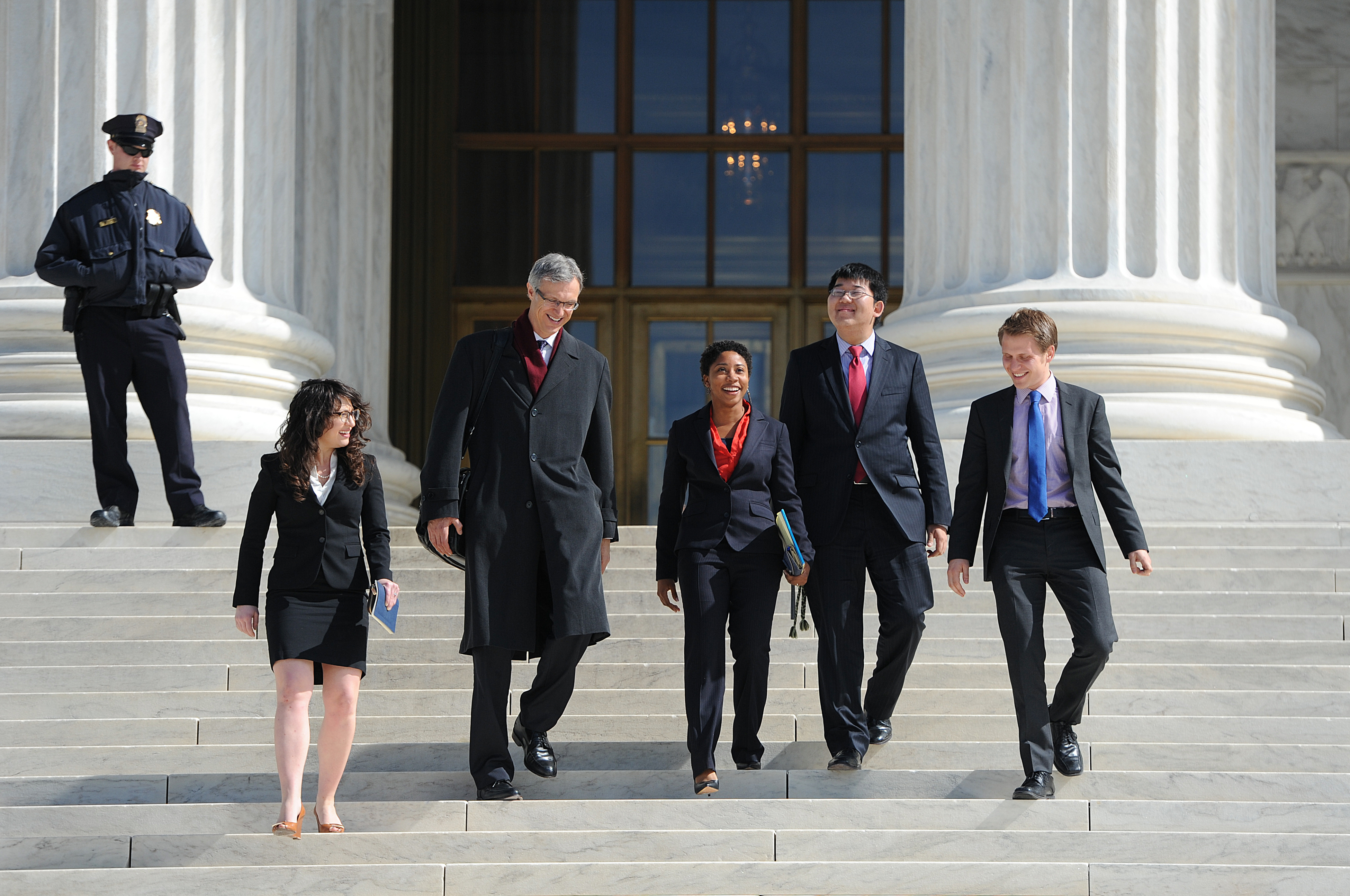What We Do
Experience — solving real problems, serving real clients — is an essential ingredient in the training of every SLS student.
Founded in 2007, the Mills Legal Clinic is a vital part of Stanford Law’s mission to prepare every student for the challenges, responsibilities and rewards of a career as a legal professional. Providing individualized, hands-on learning opportunities, this intensive training ground shapes future lawyers of every career aspiration, whether they choose to work in a large firm, become entrepreneurs, make policy, or engage in full-time public service. And because clinic is a full-time experience — an SLS distinction — you can immerse yourself without distractions.
The work done in the Mills Legal Clinic ranges from high-impact litigation to direct-services representation, from broad-based policy initiatives to close work with individuals—locally, nationally, and abroad. We seek to expose students to the full array of services lawyers provide and the whole range of work they may do.
Whether making legal history or making the law real for an indigent family, clinic students are developing skills they will use in practice—learning to interview and counsel clients, prepare witnesses, write legal briefs, deliver oral arguments, research and plan case strategy, and more. All of these are skills best learned by serving actual clients on real cases.
The Mills Legal Clinic is also an important part of Stanford Law School’s commitment to social responsibility. Through clinic faculty and students, we provide legal services to people who would not otherwise have access to legal representation, and we tackle precedent-setting cases with profound impact on policy and individuals’ well-being. We give students a palpable sense of why lawyers matter and how much good they can do, cultivating values they take with them into their professional lives.
Student Experiences in the Clinic
The MLC Difference — Three Unique Elements of SLS Clinical Education
1. Full-time Immersion
At Stanford, students participate in their clinics full-time, without any competing academic commitments. Law students become “student attorneys” for their clinical quarter, certified by the California State Bar to practice law under the supervision of their clinical teachers. During the quarter, they go to work every day, and they manage their professional time and commitments as lawyers must. Without competing academic commitments, the pace of learning is rapid and the learning curve is steep; students take on responsibility for their clients quickly and completely.
A typical day for a clinic student could include a client meeting, a site visit, and library time for research. The student may work on drafting a contract or litigation document, or meet with the clinical professor to discuss strategy. Another day could include the clinic seminar to examine an ethical or substantive issue, or a meeting with students in other clinics to learn about other subject areas and share ideas and reflections on becoming a lawyer. Yet another day might include a court appearance or a presentation at a client’s board of directors, and could involve travel—around the state, the country, or the world. It’s all in a day’s work for the student attorneys at SLS.
2. Faculty Supervision
Stanford’s clinics represent an investment of extraordinary resources into the highest pedagogical standards. The professors who run the clinics are not only exceptional lawyers; they are lawyers who have dedicated their careers to creating environments and caseloads to teach lessons and skills that will launch a young lawyer’s career and last a lifetime. Clinic cases aren’t merely interesting—they are cases chosen for their teaching potential.

3. Emphasis on Exceptional Lawyering
Our clinics are not designed as substantive training for a particular area of law. Instead, each clinic is designed to transform a law student into a first-rate lawyer by teaching the skills and lawyerly judgment that great attorneys possess. Regardless of where he or she intends to practice, every student in the Supreme Court Litigation Clinic will emerge a better writer; every student in the Immigrants’ Rights Clinic will gain insight into how individual representation and social policy interact. Any student who spends a quarter in the Organizations & Transactions clinic will understand institutional clients and corporate decision-making. A quarter in the Youth and Education Law Project will teach any student that a sound negotiation strategy is the key to most legal disputes.
Ultimately, a student who has participated in any one of the clinics will have had the opportunity to acquire the most important attribute a lawyer can bring to any client or problem: judgment.

